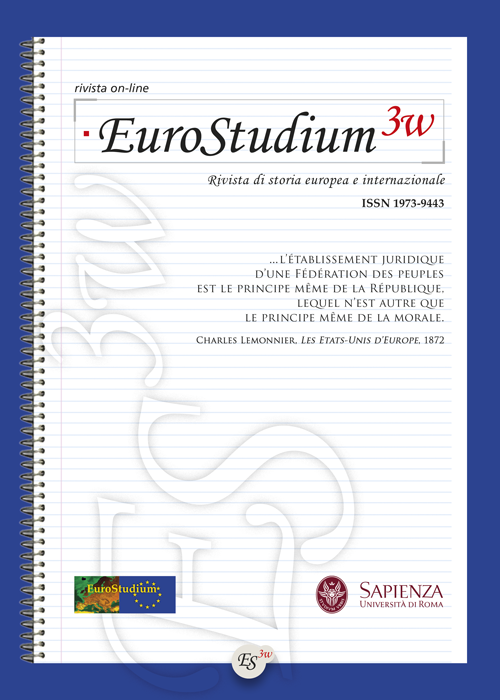La politica di Melchiorre Cesarotti tra Rivoluzione ed Età napoleonica
Parole chiave:
Reform, French Revolution, Rousseau, Necker, Democracy, Meritocracy, Municipality of Padua, Napoleonic era, EuropeAbstract
The article, through a cross-reading of published writings and private correspondence, reconstructs how Cesarotti's political thought evolved from French Revolution until 1808, the year of the author's death. As this research has highlighted, the Abbot has enriched his theory over time, shaping it on empirical observations of the continental and Italian political events. However, the philosophical core of his doctrine, built on the concept of "wise freedom", remained unchanged. For our author freedom consisted in the institutional implementation of the natural law. Based on his idea of natural order, Cesarotti articulated a project of liberalization of the economic and social structures of the Old Regime society. In particular, the Abbot believed that a strong executive power could establish a meritocratic civilization, which was supposed to guarantee a moderate involvement of the notable section of the Third State in government positions. Inspired by the works of Rousseau, Cesarotti deemed it necessary to also involve the popular strata in the new institutional settlement, both culturally and practically. Therefore, he devoted himself to define a reform for the public education system, which should have spread and rooted in the collective consciousness of the masses the fundamental principles of the new political system. Cesarotti welcomed the first news of the Revolution with timid enthusiasm, then condemned its developments. In 1797 he believed he could carry out his political program in the Municipality of Padua. After having ascertained the failure of democratic governments, he entrusted his plans finally to the imperial force, turning first in 1803 to Francis II, then in 1807 to Napoleon. According to the Abbot, the Divine Providence commissioned the French general of establishing "peace" and natural "happiness" on the Continent. This operation should have ended with the overcoming of the concept of "fatherland" and the reunification of European "Peoples" in a single supranational state.##submission.downloads##
Pubblicato
2022-03-03
Fascicolo
Sezione
Saggi e ricerche
Licenza
Copyright (c) 2022 Eurostudium3w

Questo lavoro è fornito con la licenza Creative Commons Attribuzione - Non commerciale - Condividi allo stesso modo 4.0 Internazionale.


